OLIBERTÉ SHOWS AFRICA'S TRUE POTENTIAL WITH FOOTWEAR
An exclusive Blay Report interview with the founder and president of the first international shoe company to work exclusively in Africa with manufacturing operations in Ethiopia.
Canada - It is too often we associate Africa with AIDS, poverty, and genocide. The images of malnourished children with protruding rib cages, families living in squatters, African females forced into prostitution to make living, and African males organizing gangs that lead to drugs and civil unrest are frequently seen in the news coverage and Hollywood films we watch, therefore, reinforcing an image of a helpless Africa. But for others Africa is more than what the news coverage and $100 million-budgeted Hollywood films have painted it to be.
"When I ran MBAs Without Borders, we worked in over 25 countries," Tal Dehtiar says. "Mostly in Africa, including Kenya, Rwanda, Uganda, Sierra Leone, Nigeria, Ghana, Liberia, South Africa, and Ethiopia. I saw the amazing potential of these countries and the continent that it was on. I saw people that wanted and were willing to work. I saw people that hate to be looked at as poor. It's embarrassing. I saw smart, capable people that want to move forward and to see them in positive light. It's seeing this and then constantly seeing the other side of people talking about how poor it is and how much help it needs that bothered me. And I wanted to do something about it."
Dehtiar stayed true to his words as he launched Oliberté Limited (pronounced Oh-lee-bir-teh, a play on the words "liberty" and the Canadian national anthem "Oh Canada") this year, the first international footwear company to make premium casual shoes exclusively in Africa.
(Oliberté's shoe factory in Ethiopia)
Headquartered in Canada, where Dehtiar resides, Oliberté has a designer in contract and a team of two in Ethiopia lead by team member Feraw Kebede. During production two more staff members are added as quality inspectors. Dehtiar explains that Oliberté purposely kept with a simple yet sleek construction for the shoes since the simple design codes make it easier for the company to work in a challenging environment.
The Oliberté urban-casual inspired shoes, available in men's and women's and in select stores this Fall, are manufactured in Ethiopia, which has a growing footwear manufacturing industry. The process of the production includes tapping milk from the trees and drying the milk in stainless steel drums. Once dried the material is cut into natural soles for the shoes. By early 2010 the company will be making its crepe soles from Liberia, which the rubber will be the first in shoes to come from the African country. For now the footwear's rubber is currently outsourced, while the company builds operations in Liberia.
The shoes are also made with premium goat and cow leather sewn in Ethiopia, but Dehtiar reassures that the animals are not caged and injected with hormones.
"Where any average leather comes from animals that have only lived one year for the purpose of meat, milk, and leather, our animals have had to be the livelihoods for the farmers in Ethiopia," he explains.
(Shoes are getting ready to be lasted or shaped)
Oliberté was founded on creating fair paying and long-term sustainable jobs within Africa and to showcase the true potential of the continent that Dehtiar has seen from his five years running MBAs Without Borders.
"Africa is more than just poverty that if treated equally and fairly, can make quality and compete on an international level," Dehtiar says.
(Samples of Oliberté's labels featured on the shoes)
There are many ways a nation like Africa can do to go head-to-head with international top dogs, such as the United States and the United Kingdom. For Dehtiar, he believes that to build a nation it must create jobs for its people. This will not only bring long-term sustainability but it will develop a viable middle-class in Africa.
"The best aide in my opinion is not charity. Charity is needed when there is a disaster or emergency relief, but to build a nation you need to build jobs and people need to see that a job gives our friends in Africa what they really need--a sustainable income so that they can stand on their own two feet," he adds.
(Oliberté employee sewing the shoes)
But why do it with shoes?
"I wanted to build something that I could understand or soon easily understand," Dehtiar answers. "I wanted something that people can wear everyday as an expression of themselves. Most people change shirts daily, but most wear their favorite shoes regularly. It's an expression of themselves and we thought why not a better way to show pride and power of Africa then the shoes you wear."
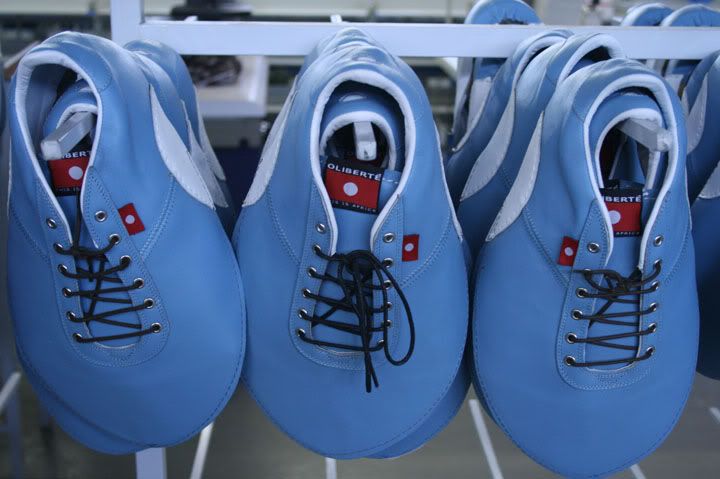
Oliberté goes beyond than what is on paper -- a shoe company in Africa. It is about empowering the continent and the people who make up its under one billion population. Dehtiar expresses that the more shoes the company sells and get on people's feet, the more "we are saying Africa has arrived" with the hope of changing the poverty-stricken image that the media portrays and that many people only know of the continent.
And it is because of this that the people of Africa, Oliberté employees, the company's partners, and farmers in Ethiopia, Liberia, Kenya, and other African countries all have become inspirations for the Oliberté footwear and movement.
Shoes are available in men's and women's and sold online at its website (
www.oliberte.com) and in select stores this Fall in Canada and the United States. Initial styles include ROVIA (Men) and ELIKA (Women) which retail for $95-$120. Kristina Bustos
[Images Courtesy of Oliberté]

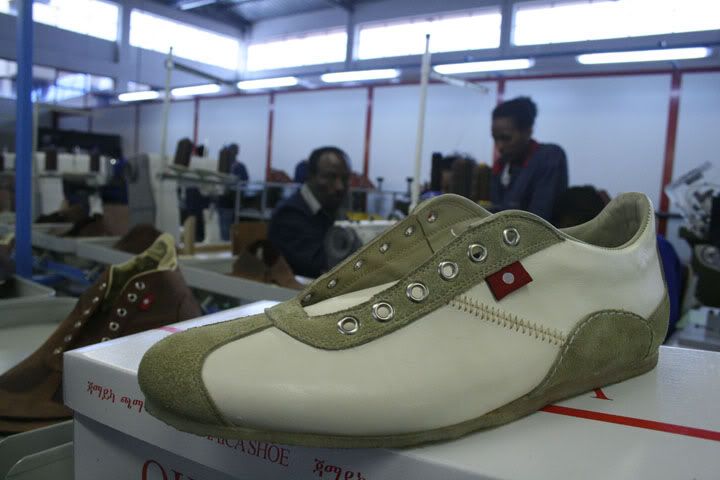
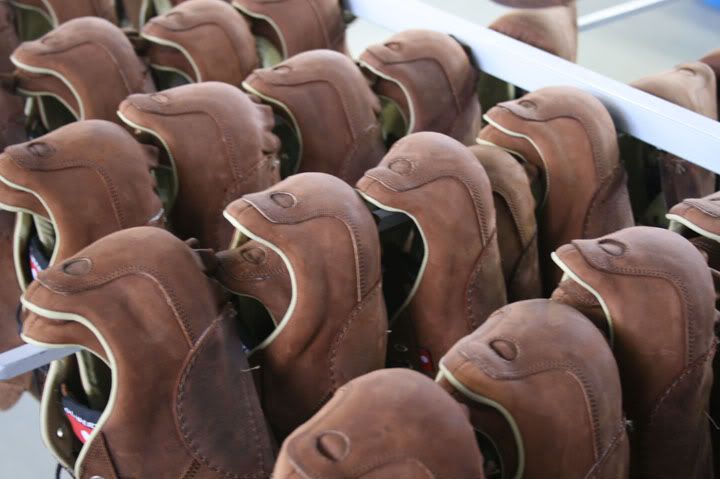
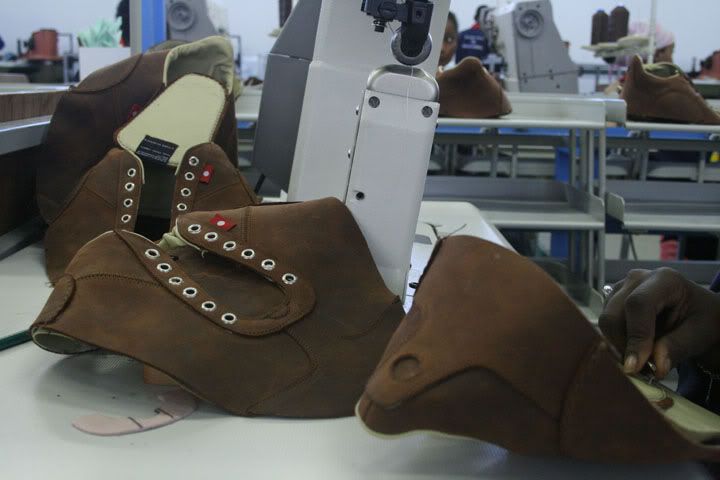
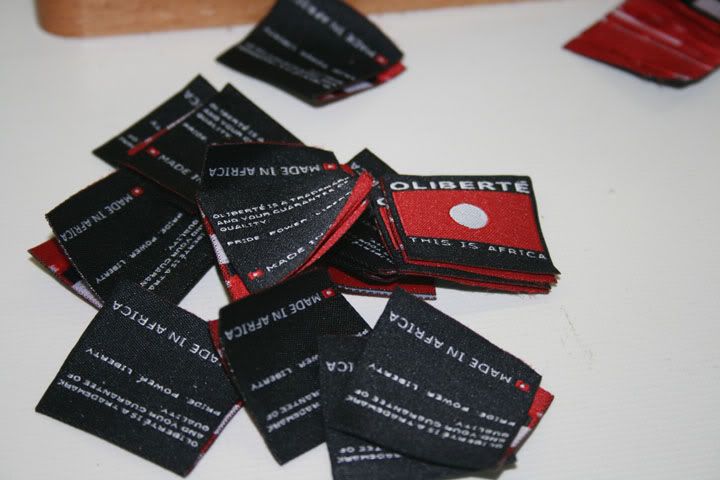
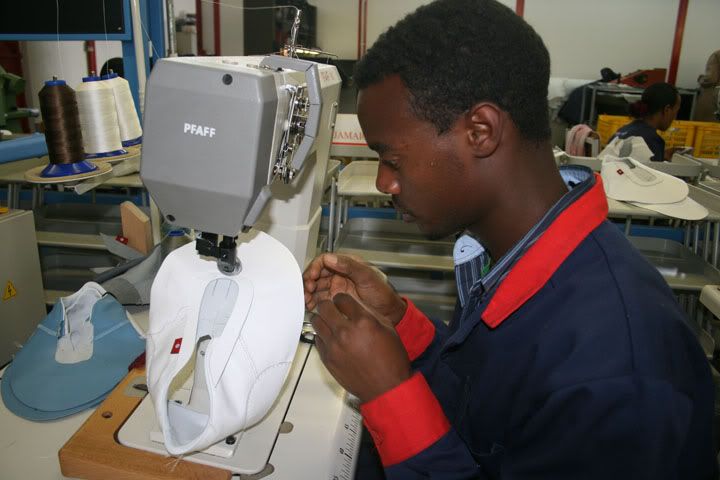






4 comments:
Wow that's a really amazing idea. It will be really interesting to watch Africa hopefully reach its potential in the future. I hope the United States and other market leaders will be able to accept it.
ugh
I think this is such a great idea with a sincere intention behind it, and I hope the company will get more support from people in the future.
I don't get the "ugh" comment though. So unnecessary and rude.
This is great. We all know Africa has it's share of problems, many in which are heart breaking, but now someone is showing a beautiful powerful side of Africa.
Great story!
Also agree, "UGH" is uncalled for.
Post a Comment